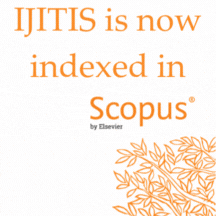Harnessing Probiotics: A Promising Avenue for Inhibiting Breast Cancer Cell Growth
DOI:
https://doi.org/10.15157/IJITIS.2024.7.1.15-23Keywords:
Breast Cancer, Probiotics, Cell Proliferation, Microbiome, Inhibit, Estrobolome, Microflora, MDA-MB-231, Lactobacillus, StreptococcusAbstract
The prospective search for innovative treatments for breast cancer is underway, with vast research initiatives aimed at understanding factors that promote the development of breast cancer cells. Underlying factors that breast cancer cells have been determined to rely on are genetic factors, environmental variables, and the strength of the body’s immune response. The resilience of the body’s immune system is profoundly influenced by the diversity of a healthy gut microbiome. Probiotics, when utilized as supplements, confer microbial benefits by establishing microflora diversity. An abundance of probiotic bacteria within the body can enhance the production of anti-inflammatory cytokines and regulate hormones such as estrogen, which are relevant to combating breast cancer. The aim of the following research was to investigate the impacts of probiotics on breast cancer cell growth. The following research tested the hypothesis that an aggressive MDA-MB-231 and non-aggressive MCF-7 breast cancer cell line will experience inhibited growth in the presence of probiotics. It was determined that both breast cancer cell lines experienced a decrease in proliferation at the higher probiotic concentrations, with MCF-7 cells being the most negatively impacted by the highest probiotic concentration examined.
Downloads
Published
How to Cite
Issue
Section
License
Copyright (c) 2024 International Journal of Innovative Technology and Interdisciplinary Sciences

This work is licensed under a Creative Commons Attribution 4.0 International License.








